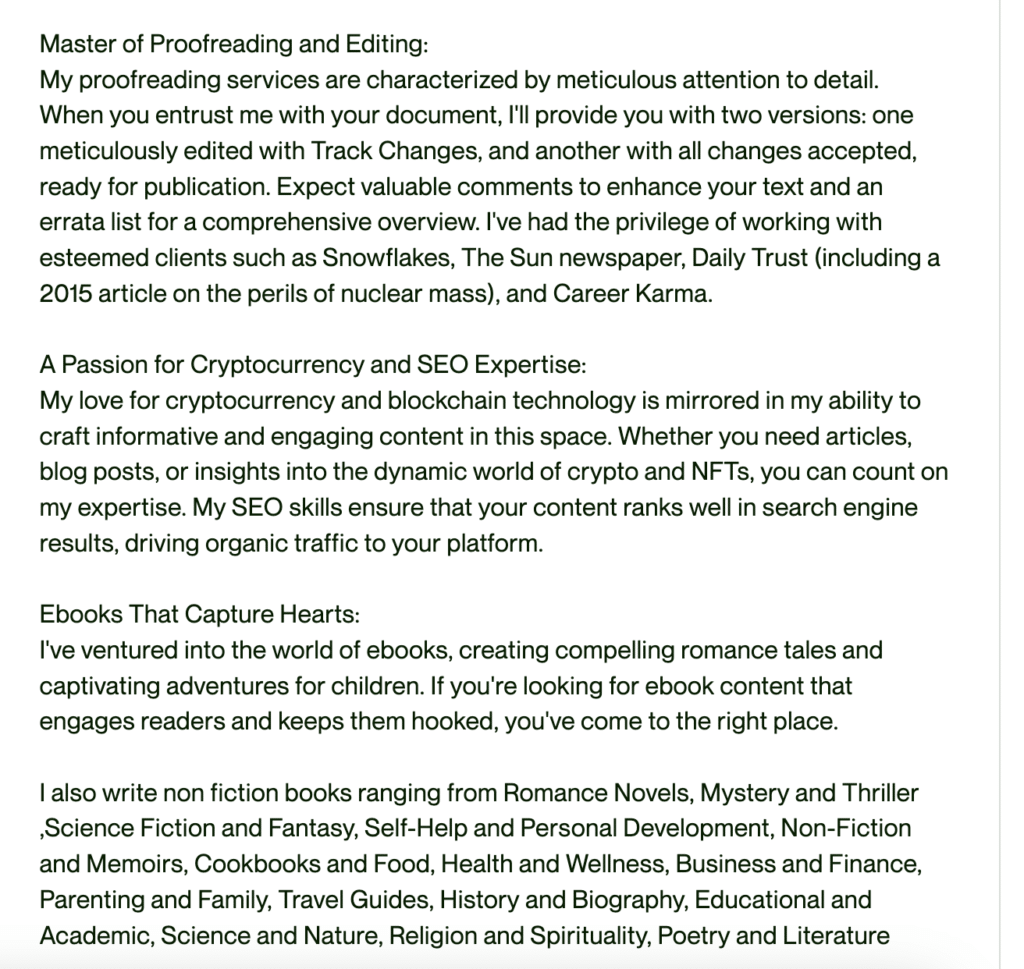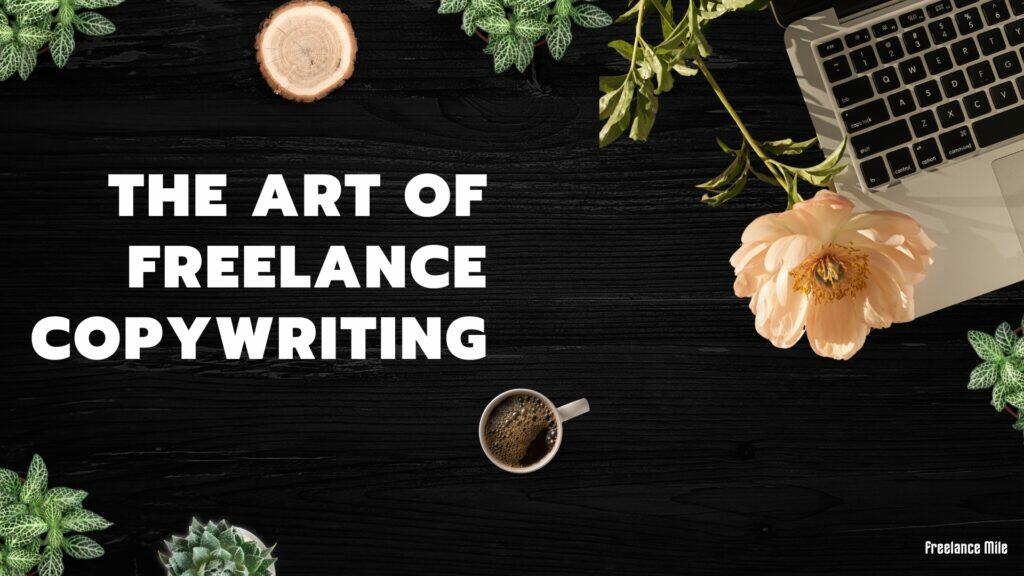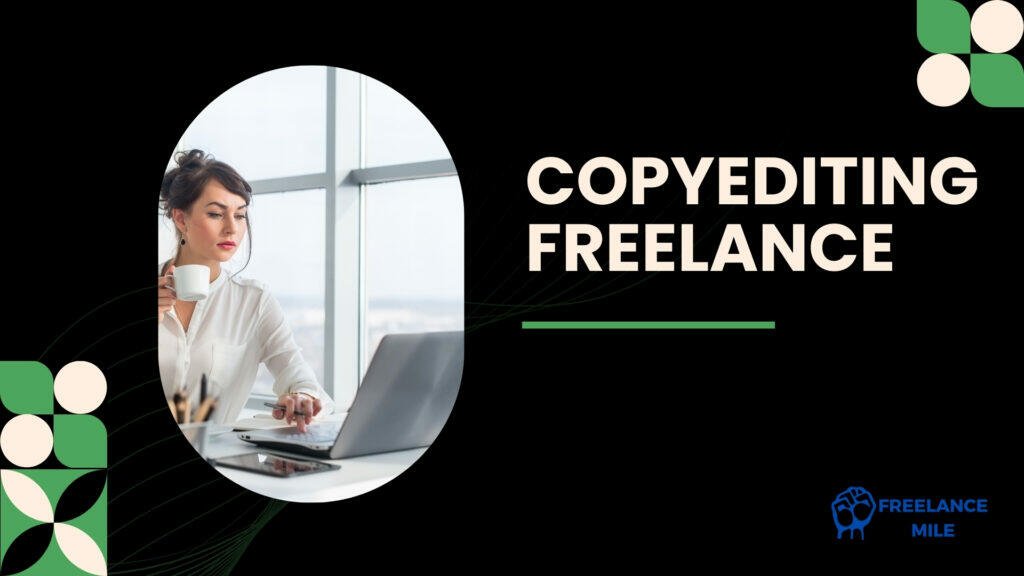Freelance editors charge varying rates based on the type of editing, their experience, and the level of expertise required. According to the Editorial Freelancer’s Association (EFA), freelance editors typically charge between $36 and $70 per hour for different types of editing, with developmental editing and book doctoring being on the higher end of the spectrum. Additionally, editors may charge per word, with rates clustering around $.03 to $.05 per word and some editors charging $.20 or more for more senior writers. It is recommended to research standard rates in your region and adapt your rates to fit the specific job requirements.
To fully grasp about what do freelance editors charge, delve into the detailed insights provided in the article below. It’s a valuable resource for aligning your rates or expectations with the industry’s standards.
Limited time? Here’s a snapshot
- Editing costs vary based on project length, complexity, and the level of editing required.
- Freelance editing rates often include different tiers, catering to various degrees of editorial intervention.
- Experience and expertise directly influence the rates that freelance editors charge for their services.
- Many editors offer personalized quotes after evaluating the specific needs and scope of a project.
- Understanding the structure of editing fees will help you better assess the value and budget for editorial services.
- Minimum fees are common among editors to ensure fair compensation for their time and expertise.
- Specialized editors may charge a premium due to their unique skills and knowledge base.
What Do Freelance Editors Charge: Comparing Tiered Editing Costs
Understanding the cost of professional editing services can be crucial when you’re looking to refine your writing. Through tiered editing, editors offer a range of services from basic proofreading to more in-depth developmental editing. Recognizing the differences between each tier and their corresponding rates will help you budget effectively for your project.
Tier 1 Editing: Basic Proofreading Rates
According to the (EFA), the median hourly rate for basic proofreading ranges from $36 to $40 per hour. The median rate per word is between $.02 and $.029 per word. The median pace of work for this tier is 4-6 pages per hour.
Tier 2 Editing: Line and Copy Editing Rates
The EFA reports that the median hourly rate for line and copy editing ranges from $46 to $50 per hour. The median rate per word for line and copy editing is between $.04 and $.049 per word. The median pace of work for this tier is also 4-6 pages per hour.
Assessing Hourly Rates and Project-based Pricing in Freelance Editing
When diving into the realm of freelance editing, understanding the financial dynamics is crucial. Editors often present their editing work in two predominant models: hourly rates and project-based pricing. Both approaches cater to varying client needs, balancing editing cost, time investment, and customer service quality.
How Hourly Rate Affects Overall Editing Costs
The appeal of an hourly rate for editing work lies in its direct correlation with the time and effort expended by the editor. This transparent model enables you, the client, to align the editing costs with the actual hours dedicated to your project.
When engaging freelance editors, it’s crucial to have a flexible pricing model that adapts to the varying scope of editorial work. Unlike fixed-rate models, an hourly rate ensures that you only pay for the work that is actually done, providing a fair and transparent billing system. For example, platforms like Upwork list experienced content editing freelancers in India, with rates ranging from $18 to $75 per hour, reflecting a diverse expertise and service offering.
Navigating the Complexities of Project-based Pricing
Alternatively, project-based pricing is embraced by those seeking a comprehensible upfront cost. Especially helpful for larger projects with variable demands, this approach provides an outline on the total investment required. While it involves an intricate matrix of factors such as text complexity and desired outcomes, it also empowers you with transparency. This way, the freelance editing job is not a series of open-ended costs but a well-structured investment.
Deposit Requirements and Payment Schedules
Layered on top of these pricing strategies are the deposit requirements and payment schedules which fortify the professional relationship between you and the editor. The editors, who request a standard 25 percent deposit, are seeking a commitment that safeguards their dedication to the editing work. Final payments become due upon project completion, ensuring a cohesive financial agreement for stellar customer service. Below is a snapshot of typical payment schedules you may encounter in freelance editing:
| Service | Deposit | Interim Payments | Final Payment |
| Hourly Rate Editing | N/A | Based on hours logged | Post completion |
| Project-Based Editing | 25% upfront | Progress-based installments | Upon delivery |
Whether it’s the flexibility of hourly rate costs or the predictability of project-based pricing, both models involve a deep understanding of editing costs, deposit requirements, and payment schedules, all integral to excellent customer service. As an editor or client, gauging these factors will significantly improve your collaboration experience.
The Role of Editing Complexity in Determining Freelance Editing Fees
When you embark on hiring a freelance editor, understanding the impact of editing complexity on service fees is vital. Different manuscripts require varying levels of scrutiny and expertise, which can directly influence pricing. Developmental editing, which involves an in-depth critique of content, can be a more arduous task compared to basic proofreading. Similarly, adherence to specific editing styles like AP, MLA, or Chicago can add layers of complexity, as each style guide has its unique rules and standards.
| Editing Complexity | Description | Typical Applications | Impact on Cost |
| Basic Proofreading | Surface-level corrections such as grammar, punctuation, and spelling errors. | Posts, blogs, general web content | Lower Cost |
| Copy Editing | Conforming text to style guides (AP, MLA, Chicago), improving clarity, style, and flow. | Articles, books, essays | Moderate Cost |
| Developmental Editing | Comprehensive editing focusing on structure, argument development, and content enhancement. | Books, dissertations, extensive reporting | Higher Cost |
| Technical Editing | Specialized editing for documents requiring knowledge in a specific field. | Technical manuals, research papers, scientific literature | Specialized Cost |
The table above illustrates how varied editorial requirements can be, each augmenting the editing complexity and, subsequently, the fees charged by freelance editors. Whether it’s the thoroughness of developmental editing or the precision needed to align a document with the Chicago Manual of Style, every level of complexity commands a different rate. So, when you’re considering the cost of a freelance editing service, think about the intricacies involved in shaping your manuscript to meet your standards and how these might reflect on the investment you’re making towards your work’s success.
Understanding the Spectrum of Editing Services Offered by Freelancers
Embarking on the writing process can be both an exciting and daunting task. As you weave your thoughts into words, it’s imperative to recognize the various forms of editing that can elevate your work. Freelance editors are the unsung heroes who fine-tune your writing to ensure it communicates your ideas clearly and effectively.
This is an editor profile on Upwork highlighting his specialized services. Below, you can see how these services are marketed to potential clients.

Now, Let’s delve into the two pillars of freelance editing: substantive editing and copyediting.
| Service | Description | Ideal For |
| Substantive Editing | Examines the content’s structure, clarity, and coherence, focusing on effective communication and logical flow. | Academic theses, novels, comprehensive reports |
| Copyediting | Ensures grammatical correctness, linguistic clarity, and adherence to a specific style guide. | Journal articles, business documents, book manuscripts |
It’s not just about rectifying errors; it’s a thorough exploration to boost the readability and sophistication of your project. When you decide to invest in either of these services, you are not just paying for a pair of fresh eyes, but also tapping into the editor’s expertise in the writing discipline. Remember, whether it’s your story to tell or an argument to present, the quality of your writing speaks volumes about your dedication to your craft.
Minimum Fees and Value Assessment in Editorial Freelancing
When delving into the world of freelance writing and professional editing, many overlook the strategic rationale behind minimum fees. These fees are not arbitrary; rather, they serve as a foundational guarantee that acknowledges the meticulous nature of an editor’s labor. Particularly in editorial freelancing, where each project varies in scale and complexity, these minimum charges are pivotal in ensuring that the editor’s invaluable time and nuanced skillset are equitably compensated.
Take Edit911, an esteemed editing firm, which sets a benchmark for its minimum fee at $100. This isn’t just a number; it mirrors the caliber of professionals they staff—editors with doctorates who apply a blend of scholarly rigor and editorial acuity to each project they undertake. Imagine engaging with a specialist whose academic endeavors have honed their expertise, now channeled into enhancing your manuscript—this level of professionalism is mirrored in their fee structure.
- Edit911’s Minimum Charge: $100
- Doctorate-level Editor Expertise
- Time and Intellectual Investment
Understanding the value associated with minimum fees can not only help you navigate the financial aspects of hiring a professional editor but also align your expectations with the quality of the service provided—a vital consideration in the domain of freelance writing and editing.
Minimum fees reflect not just the time it takes to polish a piece of writing but also the intellectual energy devoted to each word, each sentence, which ultimately shapes the overall narrative.
A Professional Editor
As you consider enlisting editing services for your next writing endeavor, bear in mind the significance of these preliminary costs. They are the foundation upon which professional editors like those at Edit911 build their commitment to elevating your work through meticulous attention to detail and profound editorial expertise.
Impact of Experience and Expertise on Freelance Editing Rates
When you’re venturing into the world of freelance editing, understanding how experience and specialized skills influence freelance writing rates is crucial. Whether you’re seeking the services of a freelance proofreader or a seasoned book editor, their level of expertise will be an important factor in the cost of your project.
What to Expect from Novice versus Veteran Editors
Novice editors often step into the field of freelance editing with much to offer—fresh perspectives and adherence to contemporary styles. However, their freelance writing rate is generally lower because they’re in the process of building up their reputation and clientele. Conversely, veteran editors bring a wealth of experience to the table. They command higher fees due to their proven track record of developing high-quality and polished content. This reflects not only their adeptness at refining content but also their efficiency and efficacy, reducing the need for further revisions.
The Premium on Specialized Skills in Editing
An editor’s specialization commands a premium in today’s market. From content marketing to developmental editing, possessing a niche set of skills allows editors to cater to specific genres or industries. A developmental editor, for example, who can adeptly restructure a narrative, or a book editor with a keen eye for what makes a manuscript marketable, may set a higher freelance proofreading or editing rate that reflects their depth of knowledge and the demand for their specialized expertise.
| Editor Type | Experience Level | Typical Freelance Writing Rate | Services Offered |
| Novice Editor | Entry-Level | $20-$35/hr or $0.01-$0.05/word | Basic proofreading, grammar, and spelling checks |
| Experienced Copyeditor | Mid-Level | $40-$60/hr or $0.05-$0.10/word | Detailed line editing, style, and consistency |
| Developmental Editor | Expert | $50-$100/hr or $0.10-$0.25/word | Structural editing, narrative development, consultation |
| Book Editor with Content Marketing Expertise | Expert + Specialized Skills | $100+/hr or custom project rates | Comprehensive editing, marketability analysis, content strategy |
Conclusion
Future Trends in Freelance Editing Rates and Market Dynamics [2024 and Beyond]
The freelance editing market is expected to continue growing, with the global freelance market projected to reach a value of $500 billion by 2024.
As for specific types of editing, copyediting, proofreading, and developmental editing rates can vary widely. For example, copyediting rates for nonfiction are typically $41–$45 per hour, and proofreading rates for fiction are $31–$35 per hour. Developmental editing rates can range from $1,000 to $5,000 or more, depending on the project’s complexity and the editor’s experience. It is essential to research and compare rates from different freelancers to ensure you get a fair price for the services you need.
Skilled freelance editors are invaluable, effectively enhancing the readability and coherence of your content. Their diverse rates are a testament to their developed skill set, accumulated experience, and specialized knowledge. Keep in mind that an editor’s ability to refine and fortify your writing is an investment in the caliber of your content, directly impacting its reception and success. So, when you’re budgeting for a freelance editor, consider not only the editing rates but also the long-term value they add to your work.
Ultimately, your decision to partner with a freelance editor should reflect both your needs and what you value in editorial support. Look for a balance between cost-effectiveness and the quality assurance that comes from a seasoned freelancer’s touch. Remember, each hour invested in editing can turn sprouts of ideas into a flourishing garden of articulated thoughts, ready to engage and persuade your intended audience.




